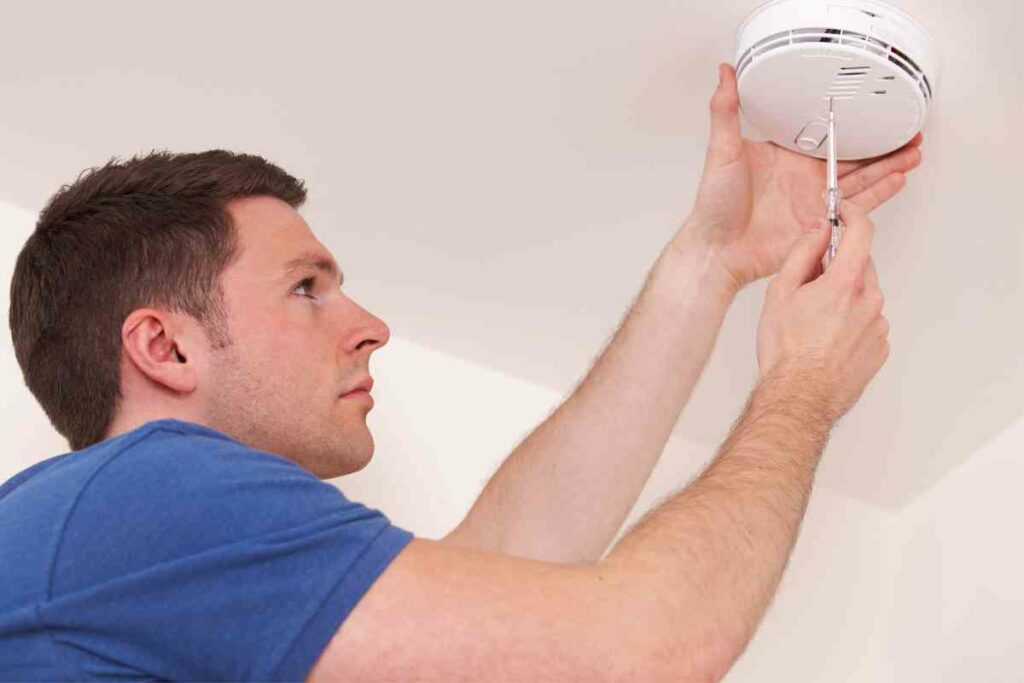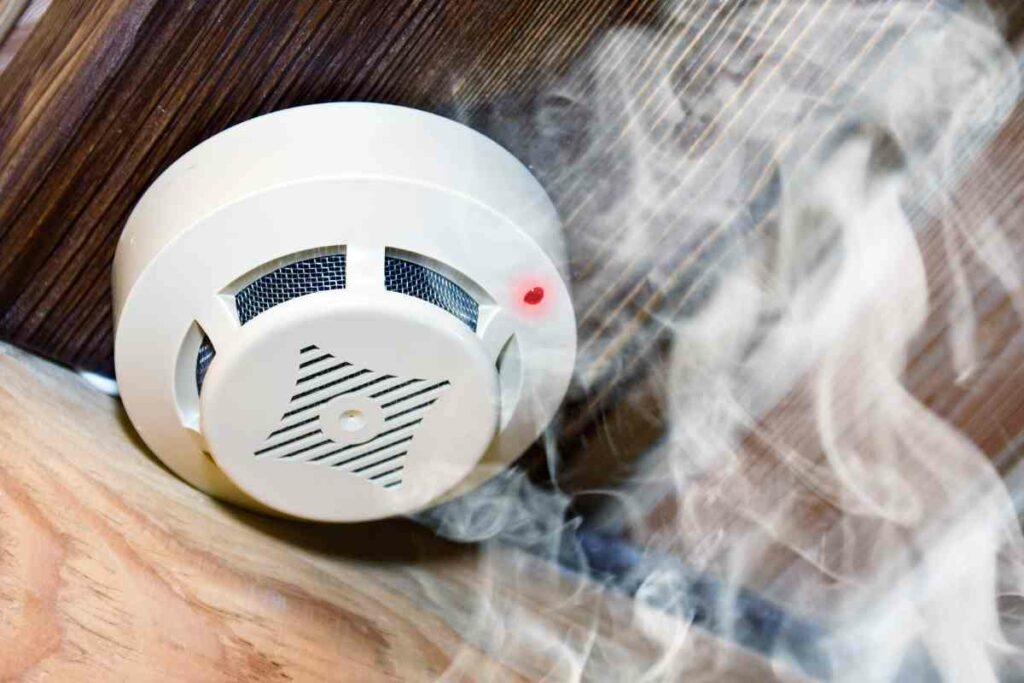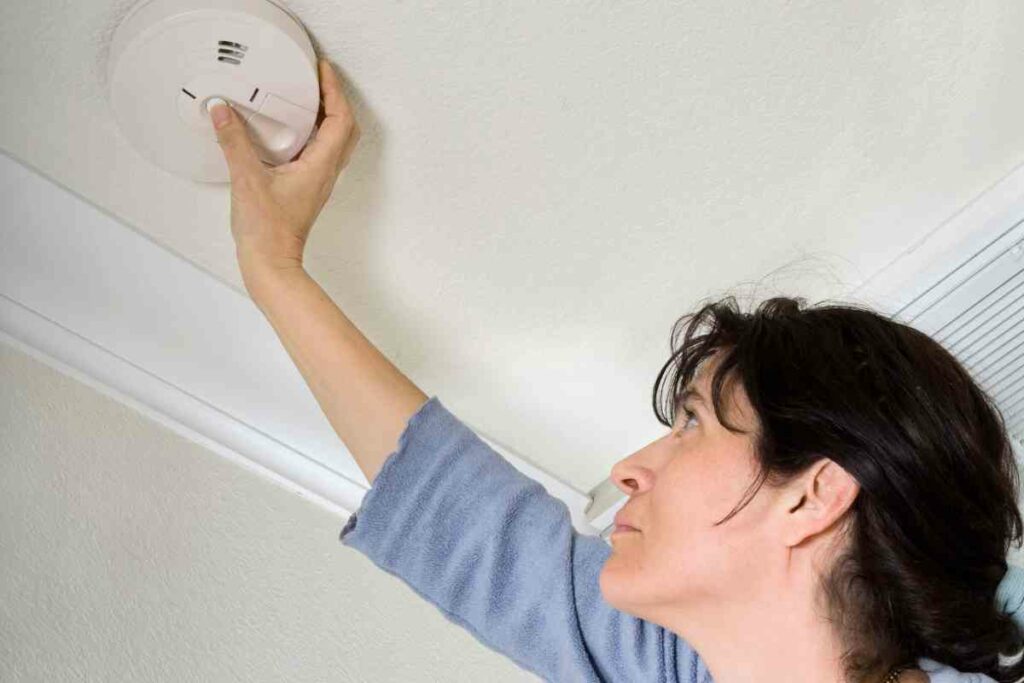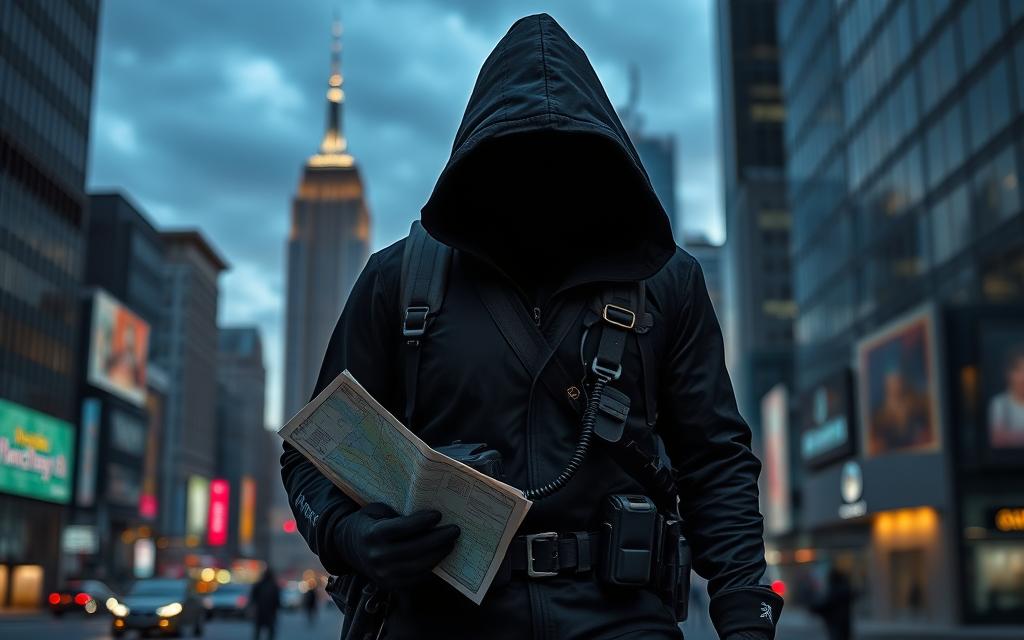If you travel a lot, you know there are some unwritten rules when staying in a hotel.
Covering a smoke detector ranks high on the list of things you should never do when staying in a hotel; it’s up there with breaking things in your room and lying about it.
Is It Illegal To Disable The Smoke Detector In A Hotel?
Since different countries have different laws, whether it’s’ legal to cover a hotel detector will vary. But it will likely be a violation of the hotel policy and you don’t want that.

A smoke detector is designed to automatically sense the presence of smoke, a key indication of fire, and sound a warning.
Some smoke detectors seem to go off easily, even from seemingly non-dangerous activities.
As a hotel guest, you may even be tempted to disable the unit in your room. But interfering with the unit could land you in trouble, turning your dream vacation into a nightmare.
Here’s why you should never cover a smoke detector in a hotel.
Covering The Smoke Detector Is Dangerous
You should never cover the smoke detector in your hotel room because it’s dangerous. This action puts the safety of others at risk.
It impairs the device’s ability to detect a fire and reduces the time you and other guests have to vacate the building in the event of a fire.
Covering The Smoke Detector May Be Illegal

Buy the Best Selling Smoke Alarm on Amazon Right Now
Hotels are required by law to have working smoke detectors in all guest rooms for the safety of their guests.
Disabling them puts people at risk in the event of a fire or some other emergency and could be considered a safety hazard.
Whether disabling the smoke detector in your hotel room is illegal will depend on the jurisdiction.
Laws vary from one area to another. At the very least, disabling the smoke detector will violate the hotel policy.
Covering The Smoke Detector Is Irresponsible
Responsibility for others is a moral imperative in modern society. We owe it to each other to uphold the safety of those around us.
A smoke detector is designed to warn people — in this case, the hotel staff and fellow guests — about a potential fire.
Covering your smoke detector will prevent it from operating correctly, an incredibly irresponsible and short-sighted thing to do.
In doing so, you are putting other hotel guests, the staff, and yourself at risk.
You may also like ?
Why People Cover Smoke Detectors in Hotels
Hotel guests cover smoke detectors in their rooms for a range of reasons.
You may find yourself exploring the idea of covering the smoke detector in your hotel room if you are engaging in what you think is a ‘non-dangerous’ activity that could set off the fire alarm.
Below, we explore why people are tempted to cover hotel smoke detectors.
Smoking
While some hotels still allow cigarette smoking within their premises, many don’t.

And if smoking is prohibited, refrain from lighting a cigarette in any hotel area, even inside your room.
However, non-smoking hotels often have designated smoking areas outside.
Still, some people want to smoke in the comfort of their hotel rooms.
And because cigarette smoke can easily set off the fire alarm, these guests will often cover the smoke detector so they can smoke peacefully.
Cooking
Another reason you may be tempted to cover the smoke detector in your hotel room is if you want to cook.
While some hotels let guests use small kitchen appliances such as microwaves or hot plates with prior approval, cooking in a hotel room is generally prohibited.
Guests still devise creative ways to cook while on vacation, including packing a camping stove or grill.
Covering the smoke detector will prevent it from going off due to the smoke from your makeshift kitchen.
To enjoy your vacation, you shouldn’t engage in prohibited activities within hotel premises.
Don’t smoke in non-smoking rooms; if cooking is not allowed in the hotel, find an alternative.
Can Smoke Detectors Detect Being Covered?
At this point, you’re probably wondering if — and how — the hotel staff can tell that the smoke detector in your room is covered.

Can smoke detectors sense when they are being covered? The simple answer is yes.
All modern units feature technology that sends out an alarm when they are being obstructed.
This technology helps hotels mitigate the risk of fire by ensuring that smoke detectors remain operational at all times.
What Happens If I Cover a Smoke Detector in My Hotel Room?
So, what will happen if you cover the unit in your room? Well, you’ll probably get caught.
A hotel staffer will usually knock on your door and ask you to check on your smoke detector.

What happens after will depend on the hotel’s security and safety policies and local laws.
For instance, if the hotel maintenance staff discovers that you intentionally disabled the unit, you may be asked to vacate the premises.
Hotels take this kind of thing very seriously, and upon this discovery, the manager will be there telling you to pack your things and leave in no time.
Don’t expect a refund, as the hotel will bill you the cost of fixing the smoke detector in your room.
The hotel may also charge you extra to cover the cost of clearing the smoke in the room, especially if you are caught smoking.
Conclusion
Covering the smoke detector in your hotel room is tempting if you want to smoke a cigarette or anything else that could set off the fire alarm, but you shouldn’t.
You’ll probably get caught and thrown out of the hotel — or worse.
Let’s not forget that covering the smoke detector in your hotel room is dangerous and irresponsible and could land you in legal trouble.
- The Secret Travel Locations Bloggers Haven’t Discovered Yet
- Stress-Free Breaks: Choosing the Perfect Getaway for Overworked Professionals
- Inside Secrets: The Quick Guide to Planning Your Dream Vacation
- Hidden Gems vs Tourist Spots: Saving Pounds on Your Next Vacation
- Master the Art of Travel Thrifting: Tips from the Pros
- Travel Like a Spy: Secret Skills for Safe Adventuring






